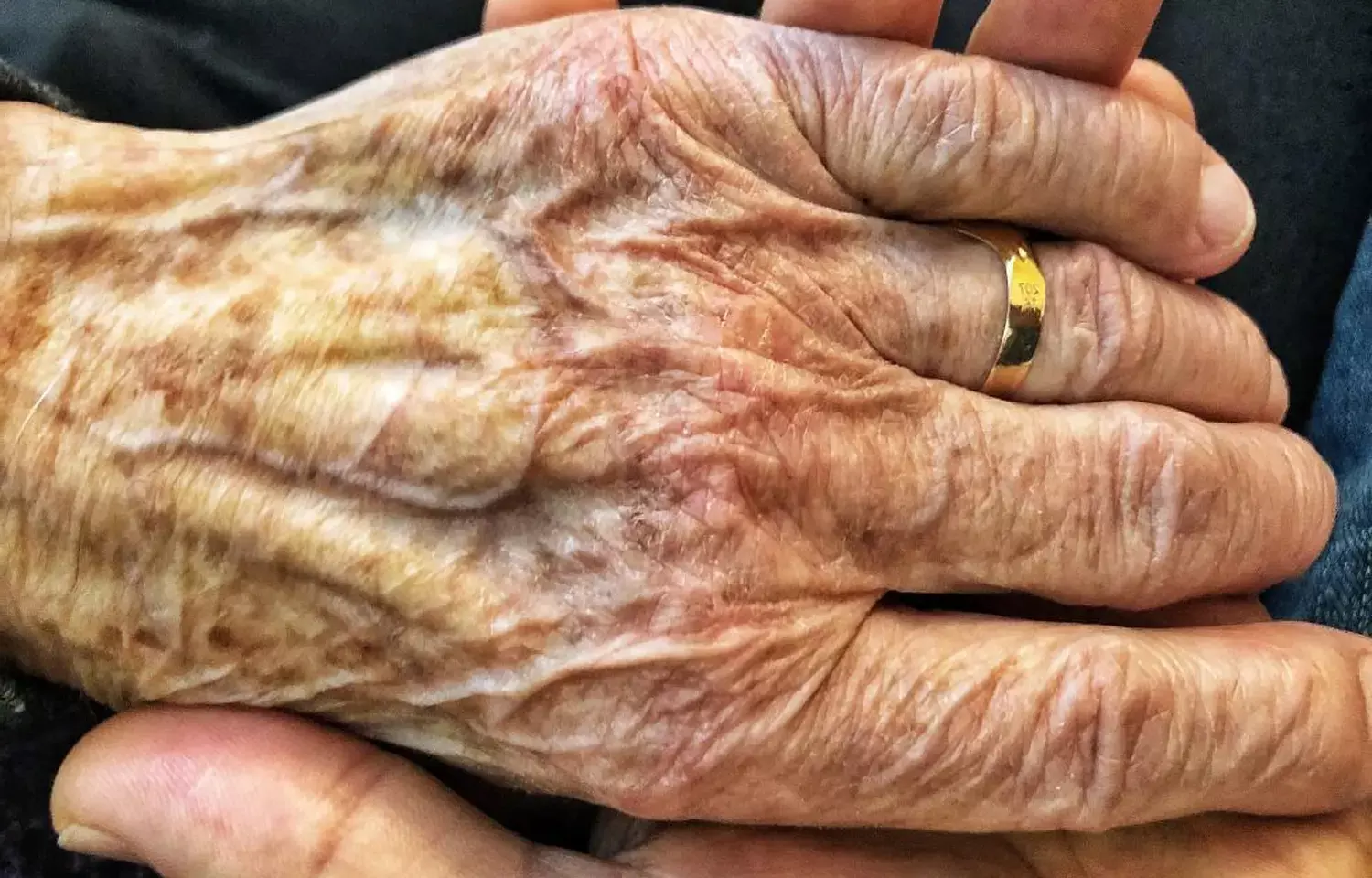- Home
- Medical news & Guidelines
- Anesthesiology
- Cardiology and CTVS
- Critical Care
- Dentistry
- Dermatology
- Diabetes and Endocrinology
- ENT
- Gastroenterology
- Medicine
- Nephrology
- Neurology
- Obstretics-Gynaecology
- Oncology
- Ophthalmology
- Orthopaedics
- Pediatrics-Neonatology
- Psychiatry
- Pulmonology
- Radiology
- Surgery
- Urology
- Laboratory Medicine
- Diet
- Nursing
- Paramedical
- Physiotherapy
- Health news
- Fact Check
- Bone Health Fact Check
- Brain Health Fact Check
- Cancer Related Fact Check
- Child Care Fact Check
- Dental and oral health fact check
- Diabetes and metabolic health fact check
- Diet and Nutrition Fact Check
- Eye and ENT Care Fact Check
- Fitness fact check
- Gut health fact check
- Heart health fact check
- Kidney health fact check
- Medical education fact check
- Men's health fact check
- Respiratory fact check
- Skin and hair care fact check
- Vaccine and Immunization fact check
- Women's health fact check
- AYUSH
- State News
- Andaman and Nicobar Islands
- Andhra Pradesh
- Arunachal Pradesh
- Assam
- Bihar
- Chandigarh
- Chattisgarh
- Dadra and Nagar Haveli
- Daman and Diu
- Delhi
- Goa
- Gujarat
- Haryana
- Himachal Pradesh
- Jammu & Kashmir
- Jharkhand
- Karnataka
- Kerala
- Ladakh
- Lakshadweep
- Madhya Pradesh
- Maharashtra
- Manipur
- Meghalaya
- Mizoram
- Nagaland
- Odisha
- Puducherry
- Punjab
- Rajasthan
- Sikkim
- Tamil Nadu
- Telangana
- Tripura
- Uttar Pradesh
- Uttrakhand
- West Bengal
- Medical Education
- Industry
Levodopa-carbidopa intestinal gel decreases dyskinesia in patients with Parkinson's Disease: Study

Spain: A new research discovered that levodopa-carbidopa intestinal gel (LCIG) dramatically decreased dyskinesia when compared to oral optimal medical therapy (OMT). LCIG showed success in the treatment of bothersome dyskinesia in individuals with advanced Parkinson's disease, as well as advantages in motor and non-motor symptoms and Quality of Life (QoL).
The study was conducted by Eric Freire-Alvarez and team, findings of which were published in the journal Movement Disorders.
There is a scarcity of data on the efficacy of LCIG for dyskinesia. As a result, the purpose of this study was to compare the efficacy of LCIG with OMT for dyskinesia in patients with advanced Parkinson's disease (PD) using the Unified Dyskinesia Rating Scale (UDysRS).
In this phase 3b, open-label, multicenter, 12-week interventional research randomized 63 LCIG-naive patients with advanced Parkinson's disease (UDysRS 30) to LCIG (N = 30) or OMT (N = 33). The UDysRS was used to measure the impact of dyskinesia from baseline to week 12. Quality of life (QoL) and motor and non-motor symptoms associated with Parkinson's disease (PD) were also evaluated.
The key finding of this study are:
1. After 12 weeks, dyskinesias assessed by UDysRS were considerably lower in the LCIG group (n = 24; 17.37 2.79) compared to the OMT group (n = 26; 2.33 2.56) (15.05 3.20).
2. At week 12, LCIG outperformed OMT in "On" time without bothersome dyskinesia, QoL, general impression of change, activities of daily living, and Unified Parkinson's Disease Rating Scale (UPDRS) Part III.
3. In 27 (44.3%) of the patients, treatment-emergent adverse events were recorded (LCIG, 18 [64.3% ]; OMT, 9 [27.3% ]). Two (7.1%) of the LCIG-treated individuals experienced serious adverse events.
In conclusion, the findings support some of the effectiveness findings for LCIG and demonstrate benefit in comparison to dyskinesia as measured directly with dyskinesia-specific metrics. The findings also provide information on the potential side effects of this treatment.
Reference:
Freire‐Alvarez, E., Kurča, E., Lopez Manzanares, L., Pekkonen, E., Spanaki, C., Vanni, P., Liu, Y., Sánchez‐Soliño, O., & Barbato, L. M. (2021). Levodopa‐Carbidopa Intestinal Gel Reduces Dyskinesia in Parkinson's Disease in a Randomized Trial. In Movement Disorders (Vol. 36, Issue 11, pp. 2615–2623). Wiley. https://doi.org/10.1002/mds.28703
Medical Dialogues consists of a team of passionate medical/scientific writers, led by doctors and healthcare researchers. Our team efforts to bring you updated and timely news about the important happenings of the medical and healthcare sector. Our editorial team can be reached at editorial@medicaldialogues.in.
Dr Kamal Kant Kohli-MBBS, DTCD- a chest specialist with more than 30 years of practice and a flair for writing clinical articles, Dr Kamal Kant Kohli joined Medical Dialogues as a Chief Editor of Medical News. Besides writing articles, as an editor, he proofreads and verifies all the medical content published on Medical Dialogues including those coming from journals, studies,medical conferences,guidelines etc. Email: drkohli@medicaldialogues.in. Contact no. 011-43720751


